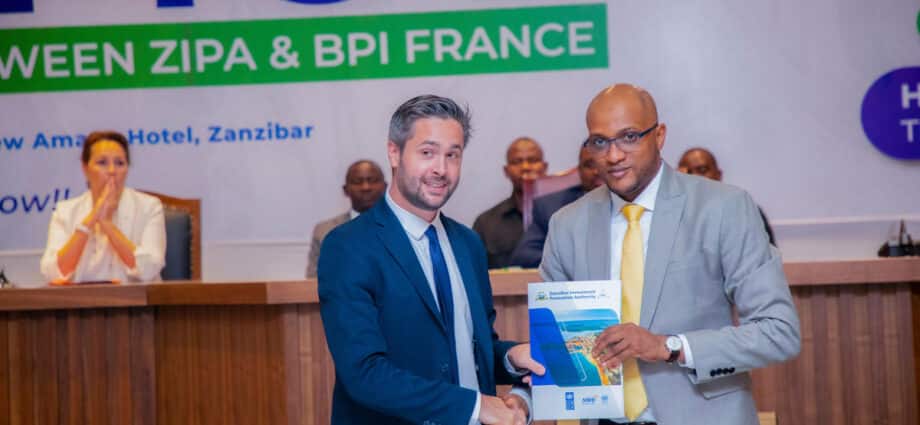
Unguja. Zanzibar is boosting its economic ambitions through a new partnership with Bpifrance, the French Public Investment Bank. The Memorandum of Understanding (MoU), signed on April 10, 2025, aims to attract French investment and expertise to the Isles, potentially creating new opportunities for Tanzanians.
The deal targets key sectors like tourism, technology, and fisheries – all vital to Zanzibar’s economy and potential sources of employment for Tanzanians.
Bpifrance will offer financing options to French companies operating in Zanzibar, which could lead to more projects and partnerships involving local businesses.
The partnership aims to foster a stronger business environment in Zanzibar, potentially leading to more job opportunities for Tanzanians, especially in the targeted sectors.
The MoU includes provisions for knowledge exchange and training programs, which could benefit Tanzanian entrepreneurs and professionals.
The Zanzibar Investment Promotion Authority (ZIPA), executive director Saleh Saad Mohamed, emphasized the importance of the MoU in attracting investment and aligning with Zanzibar’s goal of becoming a top investment destination.
French Ambassador to Tanzania, Anne-Sophie Avé, remarked that the MoU signifies the beginning of a concrete partnership rooted in trust and ambition, aiming to unlock new opportunities for both French and Zanzibari businesses .
“With this MoU, we are opening the door to meaningful projects that can drive real change in business. In innovation we are unlocking new opportunities for French and Zanzibari entrepreneurs alike.
It reflects our shared ambition to build sustainable and mutually beneficial partnerships, and I am particularly proud to witness this dynamic cooperation take shape in such a strategic and forward-looking way,” she said.
The partnership signifies Zanzibar’s proactive approach to attracting foreign investment and diversifying its economy.
By partnering with a major French investment bank, Zanzibar hopes to unlock new opportunities for growth and development, with potential benefits for the wider Tanzanian economy.
The focus on sectors like sustainable tourism and technology aligns with Tanzania’s own development goals, making this partnership one to watch.














